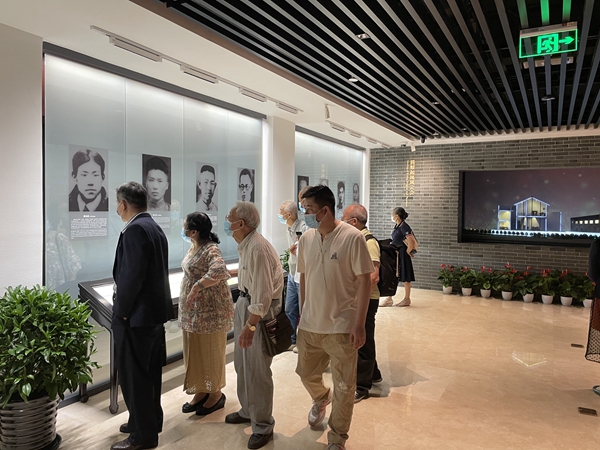Memorial makeover
 0 Comment(s)
0 Comment(s) Print
Print E-mail China Daily, May 14, 2021
E-mail China Daily, May 14, 2021
Historical site opens in time for the Party's centennial.

After nearly half a year of renovations, the Memorial for the Site of the Second National Congress of the Communist Party of China in Shanghai was reopened to the public this month. The birthplace of the CPC Constitution was reopened just in time for the upcoming centenary of the Party's founding in July.
Located in downtown Jing'an district, the site is where the Second National Congress of the CPC took place from July 16 to 23, 1922. The CPC Constitution marked the completion of the Party's founding.
The second national congress also marked the first time an anti-imperialist and anti-feudal democratic revolutionary program was put forward. The public declaration of the CPC Manifesto, the decision to join the Comintern, and the "Long Live the Communist Party of China" slogan were also unveiled at the congress.
That congress was attended by just 12 members. Today, the Party has grown to become the world's largest political party with more than 91 million members.
Officials say that the facelift given to the shikumen-a typical Shanghai house with a courtyard and black gates encased in stone frames-and upgrades to the exhibits were meant to showcase how the century-old Party is now in its best years.
"The renovation over the past six months is intended to enrich visitors' experience and restore the original look of this venue that has a special place in history," says You Wei, Party branch secretary and deputy director of the memorial.
Changes to the format and some items of the exhibition hall are evident following the renovation work.
In the oath-taking area, a Party flag has been added. Here, visitors who are Party members can pose for a photo with one of the many Party emblems affixed to the wall.
"Many Party branches come here for educational activities and some would like to renew their oath to the Party at such a historic venue," You says. "A better atmosphere helps to create a more solemn feeling."
In the main hall, there is a wall showcasing the 12 attendees of the 1922 congress. When looking at this wall from afar, the background of the photos appears white, but up close, it becomes transparent, allowing visitors to view the outdoor area and the architecture of the shikumen.
The change in the degree of transparency is made possible with electricity control. This special feature is meant to improve light flow in the exhibition hall and help create an illusion that the 12 attendees are present in the room.
On Tuesday, more than 20 members of a Shanghai society branch researching the history of the New Fourth Army visited the memorial. Many of them are the descendants of soldiers from a unit led by the CPC during the War of Resistance Against Japanese Aggression (1931-45).
Zhu Xiaorong, head of the branch, says the visit helped enrich his understanding of Party history. Zhu's parents were members of the New Fourth Army.
In February, President Xi Jinping wrote a letter to more than 40 centenarian veterans of the New Fourth Army in Shanghai.





